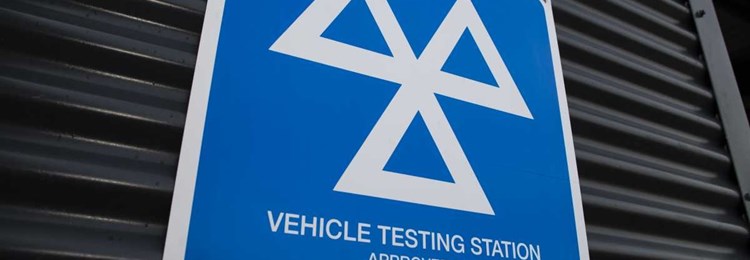
Automotive industry unites in condemnation of possible MOT change
Date: Friday 29 April 2022
The automotive industry has united in its condemnation of any possible frequency change to the MOT test, with UK AFCAR, the coalition formed to lobby the UK government in a post-Brexit era, calling it a “dangerous step backwards for road safety”.
Reports in the national media suggested that the UK government is looking at relaxing the MOT Test Frequency from a 3-1-1 test regime to an MOT test every two years, to help ease the cost-of-living crisis.
But, the UK Alliance for the Freedom of Car Repair (UK AFCAR), which is made up of trade associations and commercial organisations who share common concerns about the UK Aftermarket, has called on the UK government to shelve any such proposals that reduce road safety and lead to an actual increase in car repair and maintenance costs. The environment would also suffer as vehicle emissions remaining unchecked will result in poorly maintained vehicles harming the environment.
To ensure motoring is as safe and cost-effective as possible, motorists must have their vehicle inspected and serviced regularly. Evidence shows MOT and servicing is done at the same time so a reduction in test frequency means a reduction in servicing and further separates a motorist’s responsibility on a vehicle’s roadworthiness.
Data from the DVSA shows that one in three vehicles presented for an MOT test fail and 30 percent of those fail on brakes, a safety critical component. Therefore moving to an extended testing period with an ageing vehicle parc would see more defective vehicles on the roads and potentially cause more accidents and fatalities, as well as higher repair costs. SMMT data also shows that 42 percent of vehicles on UK roads are over 10 years old – this highlights the need for regular MOT inspections.
Despite advancements in vehicle technology, there is no evidence to support suggestions that modern vehicles are less likely to suffer from wear and tear, safety related defects. And with safety critical items such as tyres and brakes still the main cause for MOT failures, any extension is extremely concerning.
Mark Field, IAAF Chief Executive and UK AFCAR Chairman, said:
“We recognise the enormous strain the rising cost of living has on UK families and its solution will need be found through a diverse and widespread range of measures.
“But, each time the MOT test frequency has been called into question, it has been proven beyond doubt that extending the test frequency would mean a significant reduction in road safety as there would be more defective vehicles on UK roads and, as a consequence, an actual increase in repair costs for drivers.
“Any move to extend the test frequency would also be a significant blow to thousands of people, jobs and business in the automotive repair sector, who were able to remain open throughout the coronavirus pandemic, ensuring the safe and affordable mobility of essential workers and members of the public.”
